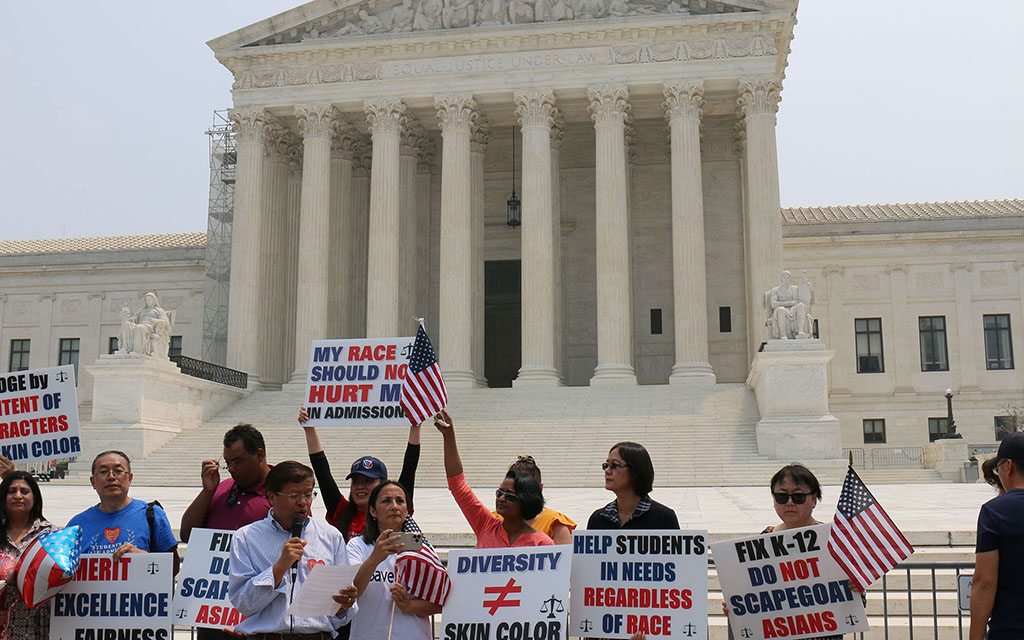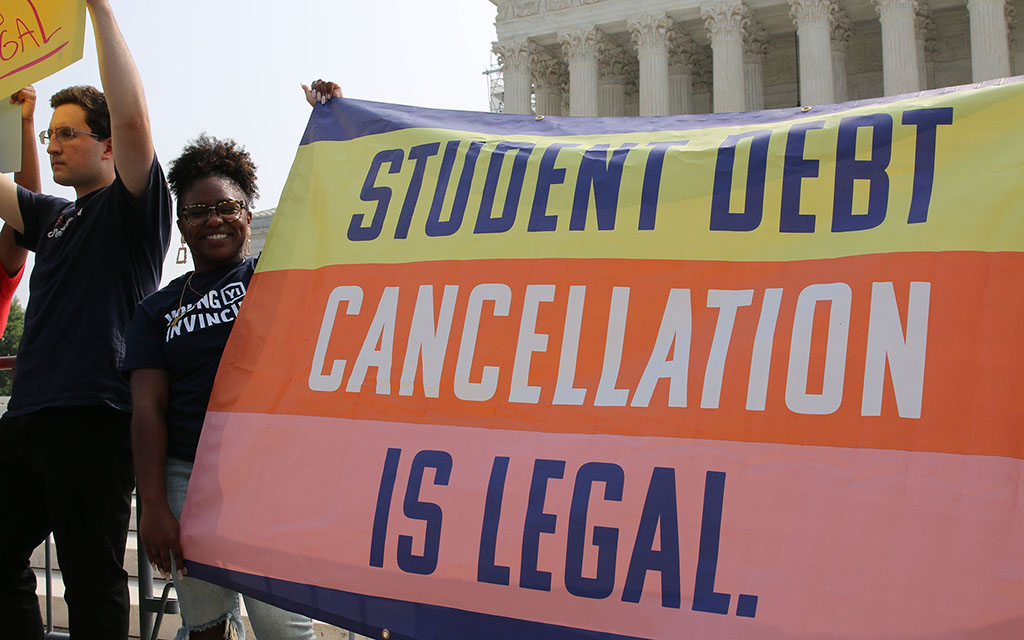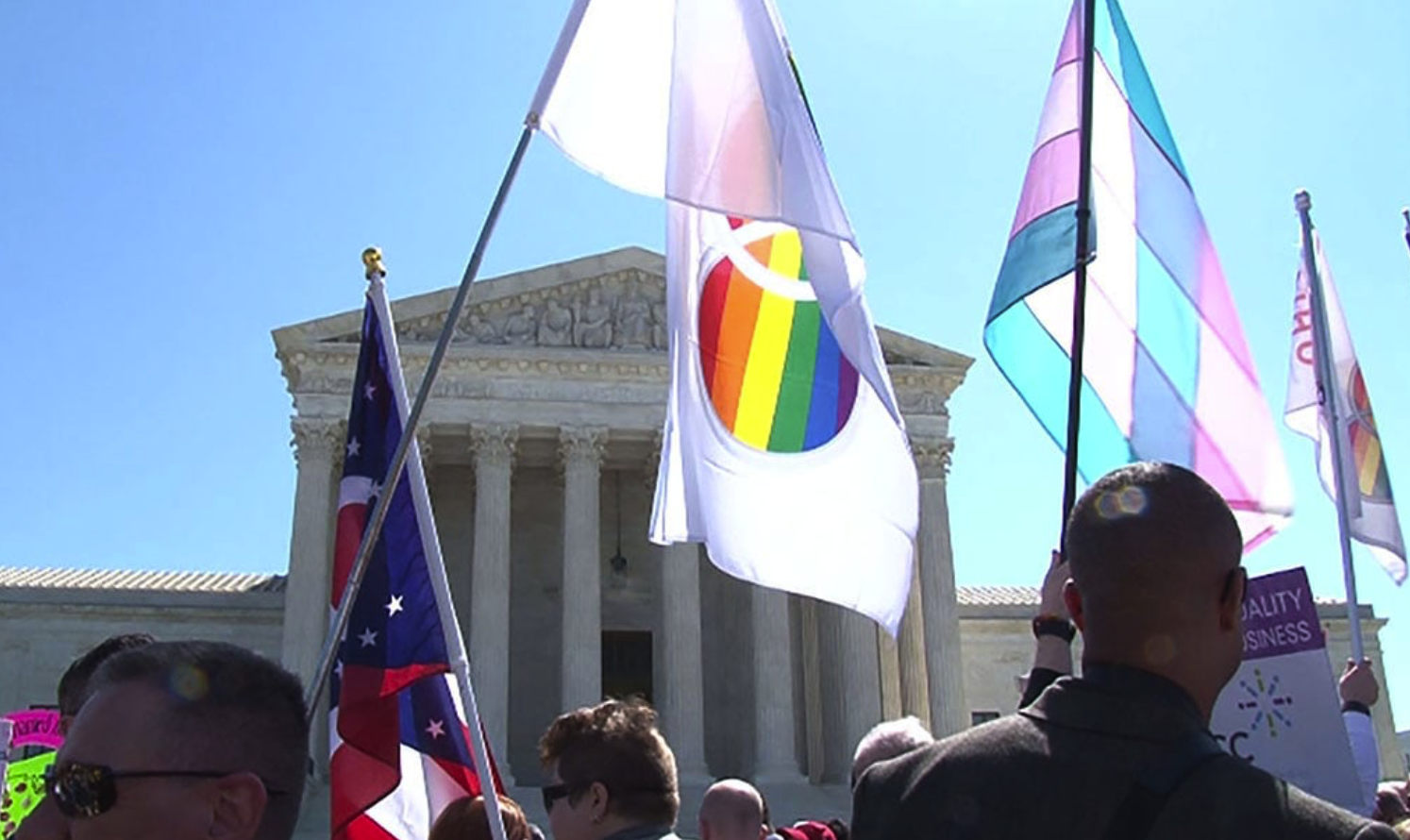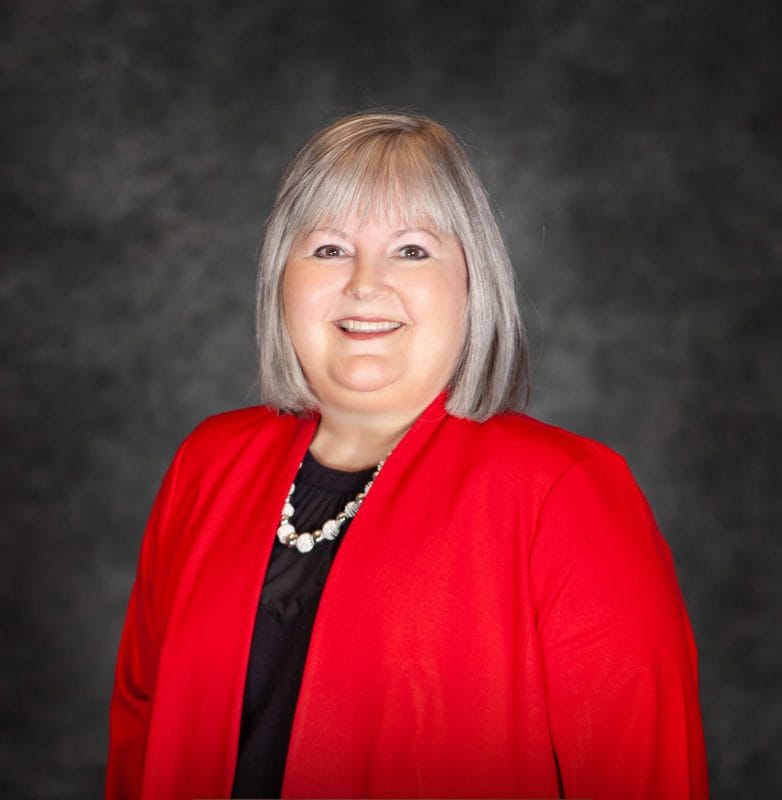Cronkite News
A rally outside the Supreme Court in 2015, when the court recognized a right to same-sex marriage. But the court last month agreed with a Christian website designer that a Colorado anti-discrimination law that could have forced her to create sites for same-sex weddings violated the First Amendment, because it would have compelled her to “create speech she does not believe.” ||File photo by Liliana Salgado/Cronkite News)
WASHINGTON – Advocates say a Supreme Court ruling that struck down anti-discrimination protections will likely have little immediate impact in Arizona – beyond confusion – but they worry it opens the door to abuses down the road.
“It is true that this does not open the gate immediately to allowing any kind of business or public accommodation to discriminate against LGBTQ people,” said Jeanne Woodbury, interim executive director for Equality Arizona, of the court’s ruling in 303 Creative v. Elenis. But, she said, “it’s another step down that path.”
“This is something that opens the door to a lot of potential future decisions that could further erode rights,” Woodbury said.
But an official with Alliance Defending Freedom, the Scottsdale-based organization that successfully argued the Supreme Court case, said its ruling in 303 Creative will have almost no impact in Arizona, where the state Supreme Court reached a similar conclusion four years ago in a different case.
“Really, Arizona has been operating under these principles since 2019 with no problems at all,” said Jonathan Scruggs, senior counsel at Alliance Defending Freedom. “That kind of goes to highlight that First Amendment and nondiscrimination laws can co-exist.”
303 Creative is a Colorado web design company owned by Lorie Smith, a Christian who said she should be allowed to refuse if same-sex couples ever asked her to design a website for their wedding. But Colorado’s anti-discrimination law prohibits businesses from discriminating against customers on the basis of a number of factors, ranging from race and gender to ethnicity and sexuality.
RELATED STORY

Supreme Court rules race-based college admissions unconstitutional
Smith sued, claiming that the law would violate her First Amendment rights by forcing her to promote “views inconsistent with her religious commitments.”
In a 6-3 ruling June 30, the Supreme Court agreed with Smith. Justice Neil Gorsuch, writing for the majority, said Colorado “seeks to use its law to compel an individual to create speech she does not believe.”
“All manner of speech … qualify for the First Amendment’s protections; no less can hold true when it comes to speech like Ms. Smith’s conveyed over the Internet,” Gorsuch wrote. “We further agree … that the wedding websites Ms. Smith seeks to create involve her speech.”
In a scathing dissent, Justice Sonia Sotomayor said the majority, for the first time in the court’s history, had chosen to grant “a business open to the public a constitutional right to refuse to serve members of a protected class.”
Calling the ruling “profoundly wrong,” she compared it with previous challenges to women’s and minorities’ rights, saying that past oppressors similarly believed they were in the right based on “sincere religious beliefs.”
“The brave Justices who once sat on this Court decisively rejected those claims,” Sotomayor wrote.
Scruggs disagreed, saying Smith does not discriminate against anyone. In court documents, she said she is willing to create content for anyone, as long as the content does not contradict “biblical truth.” The issue, Scruggs said, is with the message rather than any person’s sexual orientation.
“The problem is when the government uses these laws to force people to say something they don’t believe. That’s the overreach here and that highlights the overreach that Colorado was doing,” he said.
RELATED STORY

Supreme Court nixes Biden plan for $430 billion in student-loan relief
Scruggs says the Arizona Supreme Court came to much the same conclusion in 2019 with its ruling in Brush & Nib v. City of Phoenix – a case that Alliance Defending Freedom also handled.
In that case, two artists challenged Phoenix’s Human Relations Ordinance, which prohibits discrimination based on sexual orientation, among other factors. They said that being forced to create same-sex wedding invitations would violate their religious beliefs on marriage, and the state court agreed, saying they “have the right to refuse to express such messages” under the Arizona Constitution’s free-speech protections.
Because of Brush & Nib, the ruling in 303 Creative has already been the “law of the land” in Arizona for a while, Scruggs said.
But Woodbury disagrees that the landscape for minorities is the same as it was before 303 Creative. Even though both rulings were narrow, she said, they don’t cover the exact same grounds and, taken together, the cumulative effects on discrimination are concerning for the future.
Businesses will now be empowered to test discrimination boundaries as advocacy groups grapple with a shifting landscape, she said.
“Saying, ‘I won’t make this for you because I don’t want to make wedding websites for gay weddings,’ is equivalent to saying, ‘I won’t make a website for you because you’re gay,’” she said.
If courts “continue to apply this standard, then I’m very concerned how they’ll rule in future cases,” Woodbury said.








